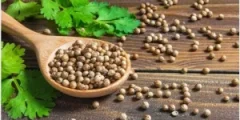What you eat during your menstrual cycle can have a powerful impact on how you feel physically, mentally and emotionally.
Food is vital to overall health, and it can also nutrition affect the menstrual cycle. What is the relationship between nutrition and the menstrual cycle and its regularity? The answer is in the following report:
Read also: Beef for sex, increased sexual desire and increased erection
Does nutrition affect the menstrual cycle?
People often choose foods based on taste and smell, and it can be difficult to plan meals ahead of time at the best times. However, if you can include some nutritious foods that support each stage of your cycle, you may find some health benefits.
What should you eat during your period?
What we eat affects our physical health, mood, weight, etc., so it’s no surprise that it also has a big impact on your menstrual cycle and its regularity . Eating whole foods throughout your cycle can help balance your hormones, as can skipping meals for a long time and avoiding foods high in sugar, to help control blood sugar levels; to avoid spikes in cortisol that contribute to mood swings.
Here are some diets that can help reduce negative symptoms and promote physical, mental, and emotional balance during your cycle.
1- Menstruation stage
Eating dark leafy greens helps replace iron from bleeding during menstruation.
During menstruation, estrogen and progesterone hormones drop to their lowest levels. It is a good idea to eat whole foods, and limit items such as: sugar and caffeine during the entire cycle; as they can lead to hormonal imbalance.
During this phase, you may want to limit your intake of fatty and salty foods. Drink herbal teas such as chamomile to ease cramps. It is thought that about 1 mg of iron is lost daily from bleeding, so adding foods such as red meat, spinach, and other dark leafy greens can help.
To absorb iron, add foods such as: oranges, red and green peppers, pineapple, strawberries, broccoli, and mango; to increase vitamin C.
2- Ovulation stage
With your estrogen levels rising, you’ll want to eat foods that support your liver.
The ovulatory phase is when your estrogen levels peak and start to balance out again.. As your estrogen levels rise, you will want to eat foods that support your liver.. Anti-inflammatory foods like: whole fruits, vegetables, and almonds will do the trick.
If you are looking to encourage pregnancy during this time; adding more leafy greens, peas, beans, and folic acid-fortified cereals can help. Foods high in antioxidants also help. Add more foods containing vitamins C and E, beta-carotene, and lutein to your diet during this time.
3- Follicular phase
At this point, your estrogen levels start to rise again, in preparation for ovulation. Your body may need more carbohydrates, along with regular protein intake during this phase. It also doesn’t hurt to keep up with iron and vitamin C, to replace levels that may have been lost during your menstrual cycle.
There are some foods that can help with the above, such as: oatmeal, soybeans, lentils, poultry, peppers, and oranges.
4- Luteal phase
This stage is when progesterone starts to rise, in the period leading up to your next period, and it is believed that eating foods that produce serotonin will help a lot during this time, such as: quinoa and buckwheat.. It is also useful to add more healthy fats to your diet.. So try to include items such as: avocados, nuts and fish whenever possible.









